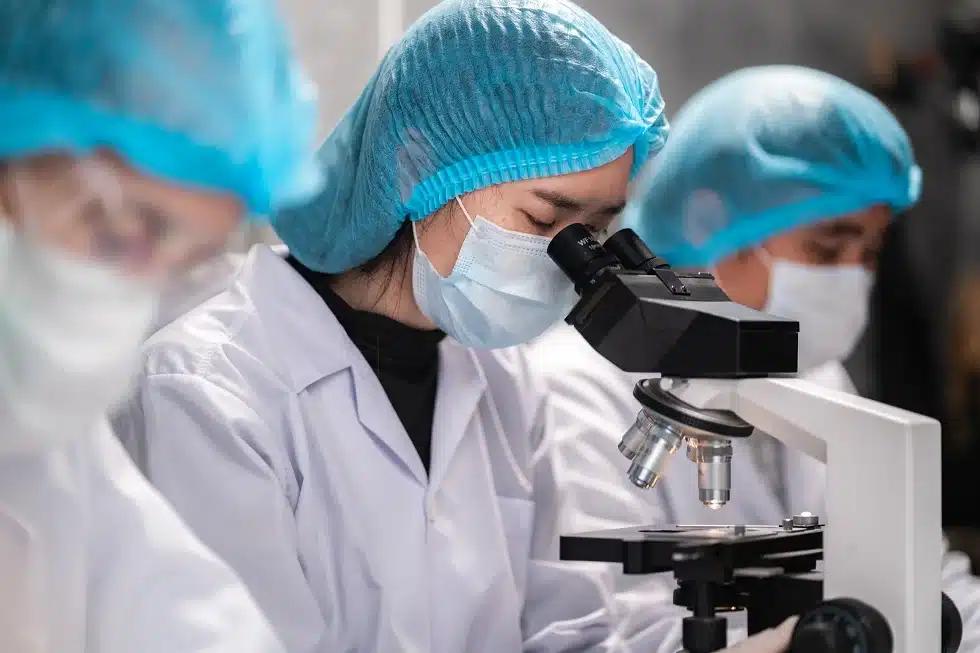Despite the government’s stringent measures, there has been an emergence of new clusters, courtesy of new SARS-CoV-2 variants in the island nation.
Over the past year, SARS-CoV-2 has undergone 6,600 mutations in its spike proteins and produced a number of variants – some of which have caused much concern in the fight against the COVID-19 pandemic. Currently, Singapore is in the midst of a struggle to contain the local spread of the new viral variants in order to prevent a second wave.
There has been an emergence of new clusters recently, including the prominent ones at Changi Airport and Tan Tock Seng Hospital (TTSH). This has led to the government imposing stringent measures under Phase 2 (heightened alert). Border control measures have also been augmented with travel into Singapore being allowed only from a limited number of countries and duration of Stay Home Notices (SHN) increased from 14 to 21 days in dedicated facilities.
The number of distinct visitors has been limited to two per household and all indoor “mask off” activities, like dine in at restaurants, stand suspended. Schools have shifted to online, home-based learning and a significant reduction in the number of individuals that can attend a wedding, or a funeral has been put in place. These measures will continue till 13 June 2021 and, hopefully, will prove to be adequate and stem further community transmission.
Back to the beginning
As one of the first countries to be affected by the COVID-19 pandemic – with cases being reported as early as January 2020 – Singapore was among the most lauded countries in terms of the way it tamed the outbreak. The strict border measures, mandatory quarantine, social distancing and masking rules, along with zero tolerance towards offenders, ensured that it was a safe haven for its residents.
By February 2020, Disease Outbreak Response System Condition (DORSCON) level was raised to Orange taking into account the presence of local transmission in the nation. The implementation of strict measures, though, has not been easy and the cost has been high. This is particularly true for families that remain separated due to closed borders, economic toll on small businesses, and limited social interactions and travel options in the small island nation.
Matter of trust
Despite the tough circumstances, one of the things that stands out is the public faith in the policies put forward by the government to control the pandemic. Singaporeans believe and follow the law of the land; they are committed to doing everything that is required to keep safe in these insecure times.
In turn, the government regularly updates its citizens on the ongoing factual situation. The number of people infected every day is shared on official websites and other digital channels, like WhatsApp, with the breakup given for community, dormitories and imported cases. The multi-ministry task force set up in January 2020, routinely assesses the ever-changing situation and rolls out preventive and phase-wise opening plans accordingly. The availability of updates via official channels has ensured that misinformation, which today has taken the form of a worldwide infodemic, has not been able to target the minds of most residents.
Mass vaccination
Singapore’s COVID-19 Vaccination Programme offers the vaccine free of cost to all its citizens, permanent residents and long-term pass holders. Pfizer-BioNTech and Moderna vaccines are currently being administered to the general public, aged over 40 years. Recently, the programme has also made the vaccines available to teens in the age group of 12-15 years.
The time gap between the two vaccine doses has been proposed to be increased from three to six weeks in the case of Pfizer and from four to eight weeks for Moderna. That way, a larger percentage of the population can be vaccinated in a shorter time frame, taking into consideration the high transmissibility of the newer viral variants. The mass vaccination is expected to be completed by the third quarter of 2021.
Way forward
In today’s interconnected world, no matter how stringent the control measures, no country can completely isolate itself from the newer viral variants. Clear guidelines need to be in place to detect and contain the spread of the virus.
Last year, despite the large number of positive cases that erupted in the crowded dormitories housing migrant workers, Singapore was able to control the spread in the general community. Concentrated efforts were carried out and the city-state went into a circuit breaker that lasted for nearly two months. A three-phase opening plan was devised and from 28 December 2020, the country had progressed to the third phase of reopening.
With its carrot and stick approach, Singapore has, so far, managed to maintain a modicum of normalcy within its borders. Going forward, it needs to continue the meticulous approach to contact trace via the TraceTogether app as well as implement stricter measures as per need. In this fight against the onslaught of the new variants of SARS-CoV-2, it’s important to remember that the ability to contain the pandemic is not in the hospitals, but with the people.
(The author, currently based in Singapore, is the Assistant Professor, University of Delhi, India.)


















Add Comment